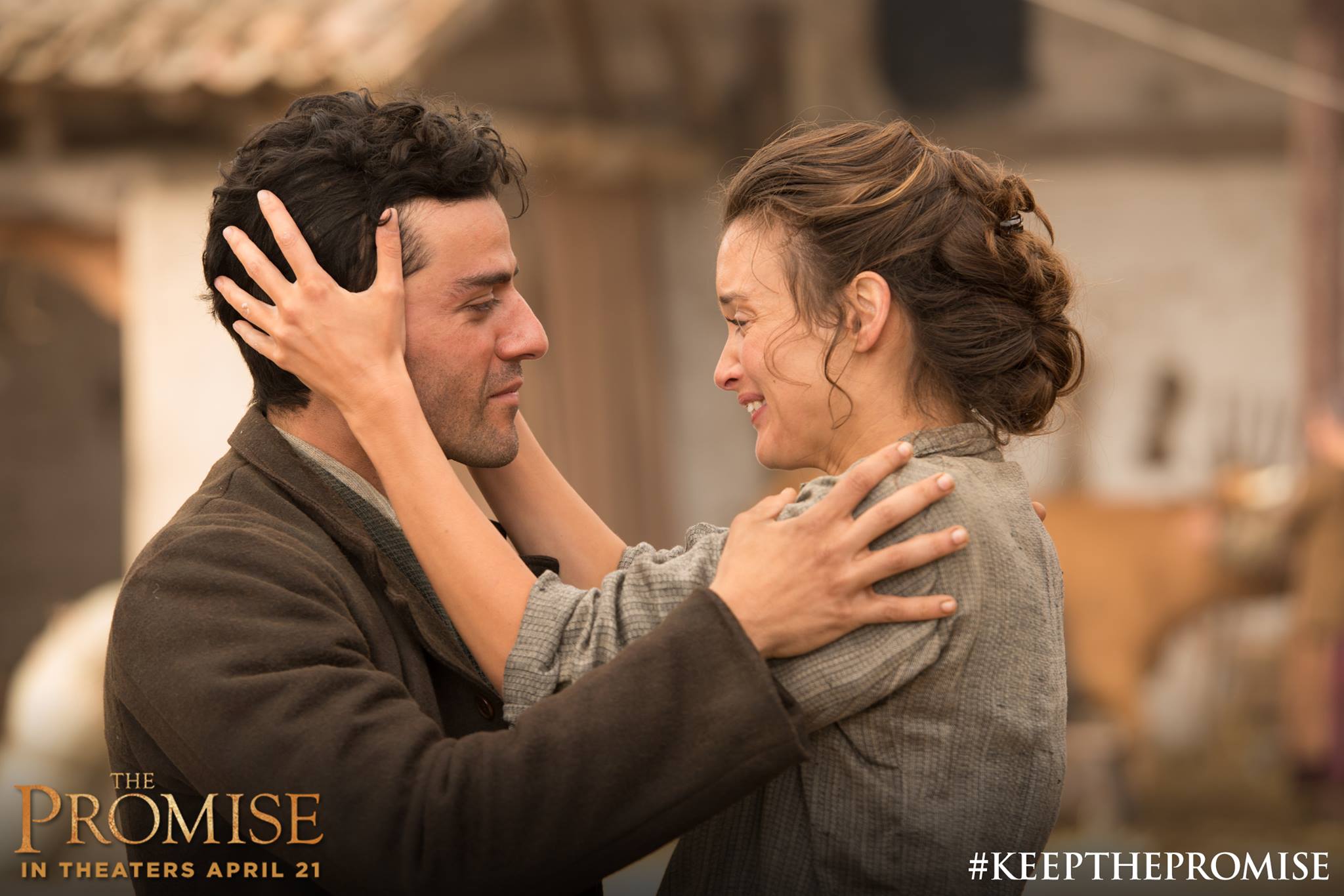On April 27, the historical drama The Promise will be screened in Yerevan.
The film has already begun to be widely screened in different countries and its screening has been accompanied by active discussions and even “film wars,” since going up on the big screen at the same time are two Hollywood films addressing the Armenian Genocide. Screening simultaneously as The Promise, developed with Armenian intervention, is The Ottoman Lieutenant produced with Turkish support.
Before the screening in Armenia, to satisfy the interest in The Promise in the Armenian information arena, we asked Armenian-American journalist Juliet Pennington to describe the closed screening she attended and the already expressed reactions, emotions, and opinions.
Pennington is a journalist and lecturer of Armenian descent who for 25 years has been covering social topics, human stories, and the lives of celebrities. She is a correspondent for People Magazine, People.com, and The Boston Globe.
Pennington actively covers particularly entertainment and cultural events. About a month ago, she attended the Oscars to submit stories for The Boston Globe.
Pennington has been following The Promise’s global campaign since the viewing organized by the Elton John AIDS Foundation. In general, there is a tense intrigue surrounding the film, since it was initially being screened only for closed audiences.
The Promise has captured the attention of major international media these days. But according to Pennington, only a handful of media were present at the Boston viewing.
“However, there were definitely tears from those who attended. I definitely went through several Kleenex tissues!” she mentions, explaining, “I think [the film] was very clear for all views. The plot was easy to follow and it packed quite the emotional punch.”

The Promise was financed by Kirk Kerkorian and had a budget of about US$100 million. The film’s director is Oscar-winning Canadian director Terry George, who is known to film-goers particularly for the film Hotel Rwanda.
The Promise stars Oscar Isaac, Charlotte Le Bon, and Christian Bale in leading roles, along with Daniel Giménez Cacho, Shohreh Aghdashloo, Jean Reno, and Angela Sarafyan.
Many international stars — Cher, George and Amal Clooney, Leonardo DiCaprio, Barbra Streisand, Elton John, Sylvester Stallone, Andre Agassi, and Kim Kardashian — support the film and urge people to definitely watch it.
The film depicts the Turkish army’s brutality and the clearly coordinated efforts to wipe out Armenians. And of course it makes a call for hope and perseverance.
“Even though the Armenians were targeted and suffered unthinkable atrocities, survivors — and their families — stayed strong and not let what happened beat them down, or ever be forgotten (hence the movie’s motto [#keepthepromise]). … I thought the film was well done — everything from the story, to the acting, to the music. Knowing that it was based on historical facts — aside from the love story, which was fictional – I found it fascinating, while at the same time extremely disturbing,” confesses Pennington.
After the film was screened at the Toronto International Film Festival in September, there were more than 86,000 ratings on IMDB — though only a maximum of 3,000 people had seen the film. The ratings on the film’s IMDB page were mostly negative. The film’s director suspects that bots were used to skew ratings.
Pennington says in doing research for her story about the film for The Boston Globe, she contacted the Turkish Embassy in Washington, D.C., for comment. “I wanted to give them an opportunity to address comments made by writer/director Terry George, who said he believes the Turkish government is behind the plethora of negative movie ratings. … But they did not respond.”
She believes the public is aware that the negative movie ratings may have been tampered with, “so the allegedly rigged ratings should not impact people’s decision about seeing the film. It will be interesting to see what kind of a response it receives when it’s released next week. … Perhaps it will open up dialogue among people — especially those who were, prior to seeing the film, unfamiliar with the circumstances surrounding the Armenian Genocide. This is such a long-standing issue and I don’t think this — or any film, for that matter — will necessarily establish a dialogue between the two nations.”
Pennington also believes that the timing of The Ottoman Lieutenant going up on the big screen (shortly before The Promise) was no coincidence. It coincides with April 24, the day of the remembrance of the Armenian Genocide.
“Turkish propaganda it seems found a response for The Promise. Terry George says that with the film The Ottoman Lieutenant Turkish film producers outpaced The Promise in March. The propaganda of the Turkish film was to deny the Turkish government’s role during the Armenian massacres,” she says. “I believe there are enough people — and not just the Armenian diaspora — who are interested in seeing the movie [The Promise] that boycotts and such won’t make much of an impact,” she adds.
Gayane Asryan







